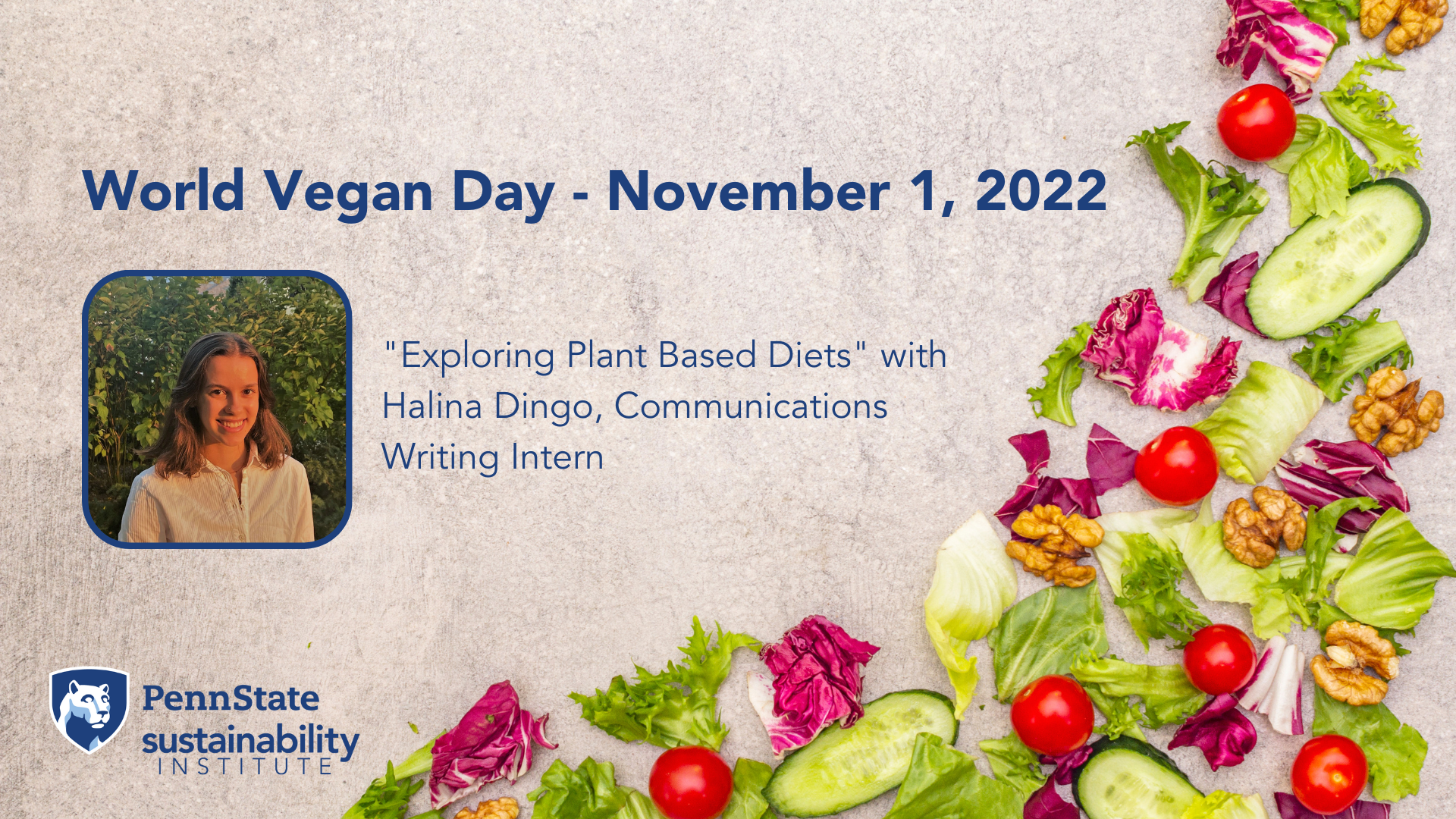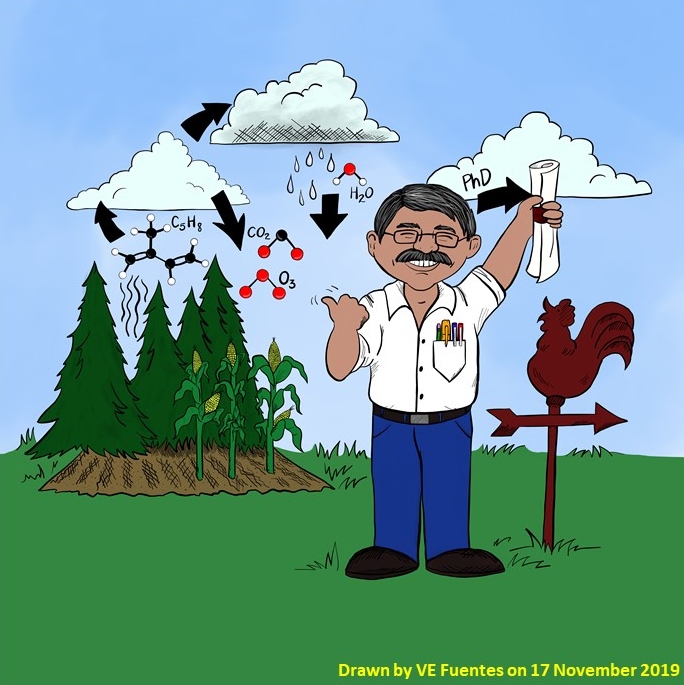World Vegan Day – Exploring Plant-Based Diets
By Halina Dingo
In recent years, Veganism has been surging in popularity in the United States, with many people converting to this diet for a variety of compelling reasons. Whether it be for health, cost, religion, concern for the environment, or animal welfare, people are increasingly embracing plant-based diets.
For many, it can be difficult to transition to plant-based eating, especially if they grew up in a household with meat-centric meals. Misconceptions about this diet, such as it being bland, unfulfilling, or lacking in protein and nutrients, run rampant. With careful planning and research, the truth is that vegan foods are just as tasty as any other.
Despite my work with the Sustainability Institute as the Communications Writing Intern for the past two years, my roommate used to be completely opposed to a plant-based diet until I wowed him with my lentil Bolognese. For those of you who don’t know, I’m a fourth-year geoscience major with minors in English and geophysics. Much of my work with SI has reinforced that a vegan diet is one of the most achievable avenues for me to personally lower my carbon footprint. Working at SI has also exposed me to like-minded folks with varied pallets and a keen love of the culinary arts.
There are some amazing recipes out there, many from cultures that have always been more inherently plant-based, such as Indian or Mediterranean food. If you’re willing to expand your palate and try new things, you will find a world of delicious vegan foods waiting for you. As for protein, there are plenty of plant-based protein sources out there, many healthier than the meat alternatives, as was the focus of a study right here at Penn State.
In 2020, researchers from Penn State’s College of Medicine and Department of Nutritional Sciences collaborated to study the relationship between sulfur amino acids and cardiometabolic diseases, or heart disease. Cardiometabolic diseases are a spectrum of conditions that include insulin resistance, cardiovascular disease, and type 2 diabetes. The study reviewed 11,576 participants’ diets from the Third National and Nutritional Health Survey. Findings suggested that lower sulfur amino acids diets were associated with a lower risk of cardiometabolic disease. Lower sulfur amino acid diets are associated with plant-based protein sources. So, in lay terms, swapping plant-based proteins in place of meat-sourced proteins can help reduce those risks.
The benefits of vegetarian and vegan diets continue to be investigated by nutritional scientists throughout the world. Studies have suggested that this diet, because of the lowered intake of saturated fat and cholesterol, and the variety of vitamins and nutrients, is associated with lowered risk of heart disease, developing certain cancers, and type 2 diabetes. While the health benefits of a plant-based diet are important, there are many other reasons you may wish to adopt vegan eating as well, such as concerns for animal welfare, or the desire to decrease one’s carbon footprint. In fact, numerous studies have found that greenhouse gas emissions are reduced by as much as 47-60% in vegetarian diets.
Whatever the reason for becoming plant-based, Penn Staters have access to a wide range of plant-based options for everyone, vegetarian or not. For those who dine at the Penn State dining commons, check out the Penn State Food Services menu information page, which shows you the menu options for each dining hall every day, with clearly labeled vegan, gluten-free, and meat-free options. Additionally, this article by Andrew Mickle from The Underground touts recommendations for vegetarian/vegan on-campus options, and the Penn State Allergies and Special Diets page hosts information about how Penn State can support your dietary requirements. For those who are looking to dine in downtown State College, you can find a wealth of resources online for vegetarian recommendations, including this article by Lauren Wysseier at Onward State on the best vegetarian and vegan food in the town of State College. Finally, for those simply looking for more information on plant-based diets and how you can complete all of your nutritional needs while eating plant-based, check out these articles from Penn State Extension:
- Crash Course on Vegetarianism, Emily Rodriguez
- Plant-Based Diet, Amber E. Denmon & Lynn James
Sources:
Dong Z, Gao X, Chinchilli VM, Sinha R, Muscat J, Winkels RM, Richie JP Jr. Association of sulfur amino acid consumption with cardiometabolic risk factors: Cross-sectional findings from NHANES III. EClinicalMedicine. 2020 Feb 3;19:100248. doi: 10.1016/j.eclinm.2019.100248. PMID: 32140669; PMCID: PMC7046517.
Becoming a vegetarian. (2020). Harvard Health Publishing. https://www.health.harvard.edu/staying-healthy/becoming-a-vegetarian.
Segovia-Siapco, G., Sabaté, J. Health and sustainability outcomes of vegetarian dietary patterns: a revisit of the EPIC-Oxford and the Adventist Health Study-2 cohorts. Eur J Clin Nutr 72 (Suppl 1), 60–70 (2019). https://doi.org/10.1038/s41430-018-0310-z






